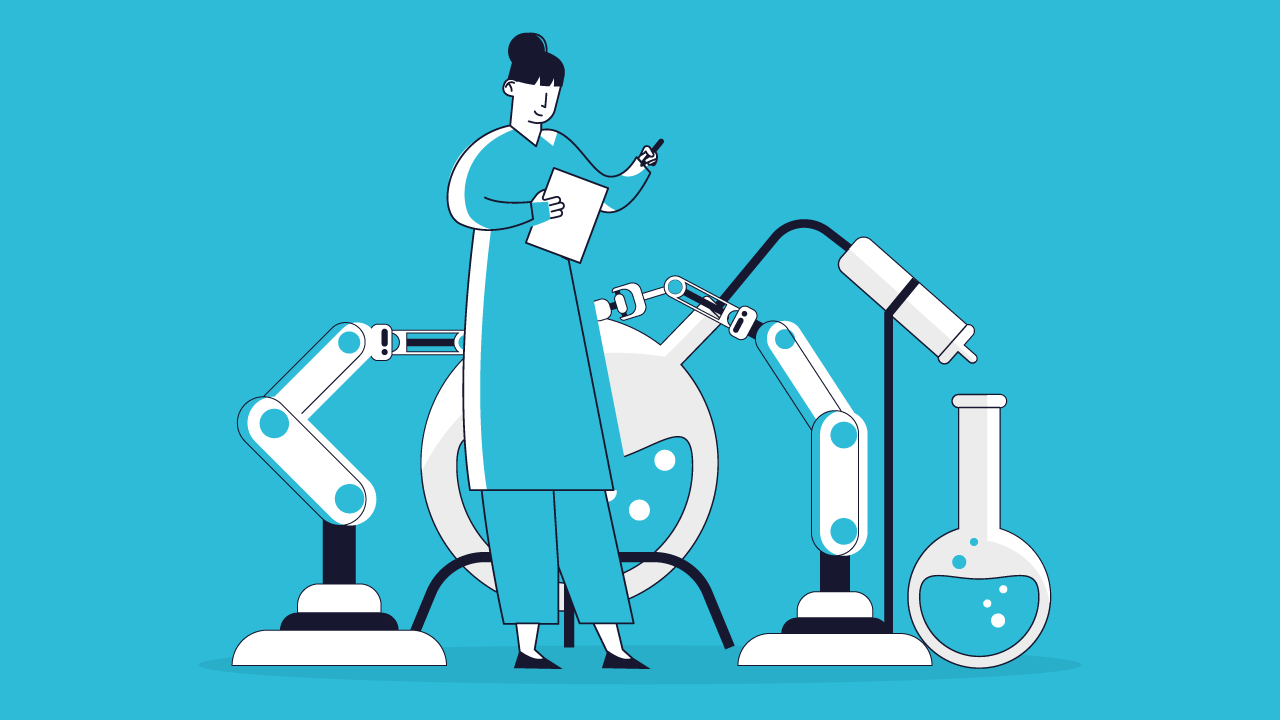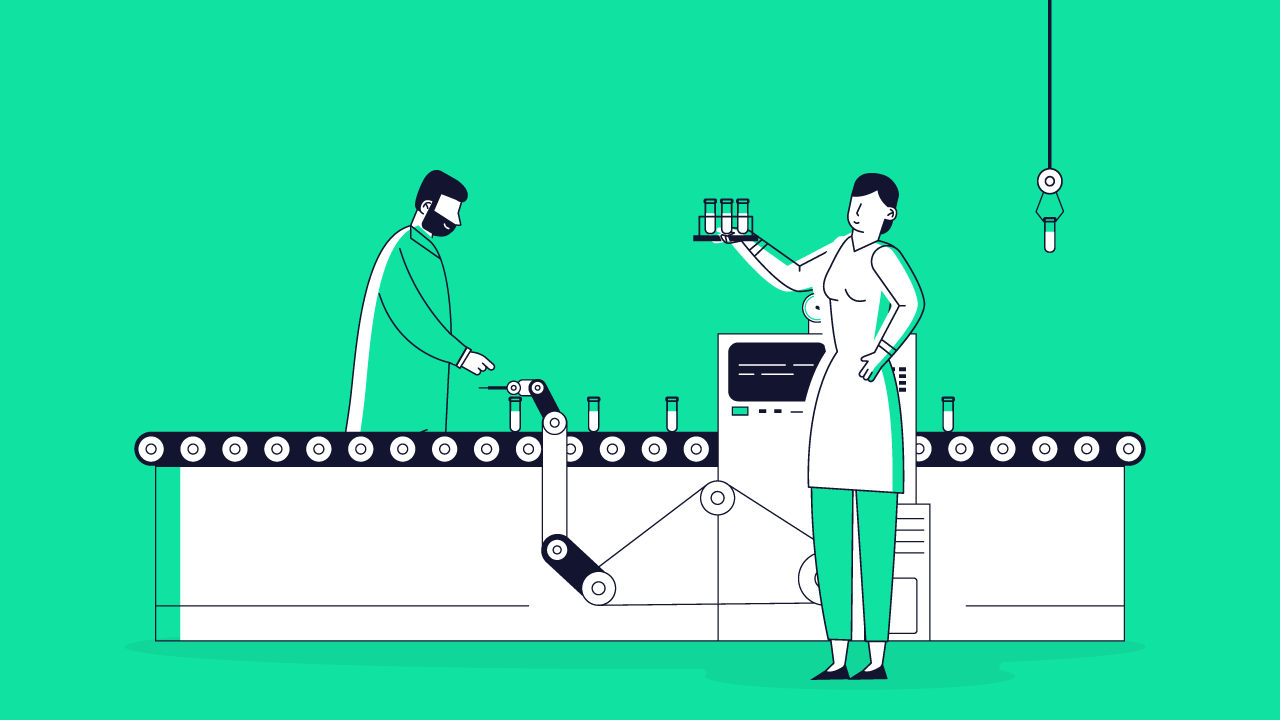Latest News
How ready are you for the future of biomanufacturing? Navigating tech, talent and transformation in tech ops
24 Apr, 20244 MinutesThe life sciences industry isn’t exactly heralded for its ability to adapt and embrace new a...

The life sciences industry isn’t exactly heralded for its ability to adapt and embrace new advances and tech—but who can blame us? We’re one heavily mandated by rules and regulation, and with patient wellbeing ultimately at stake, changes in decades-long process creates an understandable cause for concern. As a sector, we can’t always welcome innovation without first checking for every potential negative outcome and ensuring it doesn’t set us back where we intend it to drive us forward.
But alas, we can’t just stand still. And we’re not. Now, the regulatory bodies who were once viewed as a hurdle to modern advancements are embracing tech and digital-first approaches, and preparing for a world where it’ll be the norm. New regulatory guidance is being written up, legislation being passed covering the likes of AI, machine learning, and automation in health, and we’re preparing for a marriage of tech and manufacturing innovation.
As it unfolds, there are going to be some challenges. But you’ve got an opportunity as a leader in the field to decipher some of these innovations early, and understand what implications they’ll have on your business and on the demands for biomanufacturing talent.
Manufacturing 4.0 and its place in life sciences
We're witnessing a thoughtful and considered journey towards Manufacturing 4.0. It stands as a testament to a measured balance between innovation and tradition in the life sciences sector. Central to this evolution are connectivity, AI, and robotics, all coming together to support systems with a refined human touch.
Often described as the Fourth Industrial Revolution, Manufacturing 4.0 harnesses digital technologies such as the Internet of Things (IoT), cloud computing, AI and machine learning, and advanced analytics to create smart manufacturing settings where machines are interconnected and can communicate with each other.
Take AI, for instance. Its significance is undeniable, and we’re all talking about it constantly as a result. The U.S. government, in a careful stride, is supporting initiatives using AI to streamline drug discovery and manufacturing for the good of public health. The drive for digital in the biomanufacturing space is set to steamline processes, but present new challenges for companies and professionals.
What to look for in new talent
This adoption of new methods of manufacturing reshaping production, but also the expertise landscape. It means a set of emerging scenarios for professionals, and an evolving set of competencies to be held against.
Modern biomanufacturing requires a fusion of skills, as it intertwines traditional processes with artificial intelligence, robotics, and data analytics. Drawing from what we’ve seen in sectors like automotive, the integration of digital skill sets with traditional manufacturing skill is vital. We’re now in a world where drugs discovered by AI and Machine Learning algorithms are entering human trials, pointing to a potential need for professionals who deftly balance AI understanding with the intricacies of drug manufacturing.
As AI and robotics seamlessly weave into pharmaceutical operations, a diverse learning approach becomes essential. Just as aerospace engineers now embrace both aerodynamics and computational modeling, our biomanufacturing teams should have the ability to combine a blend of foundational knowledge with the shades of emerging technology.
Beyond skills, a comprehensive insight into how individual components fit into the vast industrial tapestry is crucial. Professionals should be adept at integrating technical aspects of biomanufacturing with more broad business ambitions, ensuring sound operations.
Finally, while expertise is hugely important, qualities like adaptability and collaboration are essential for the manufacturing teams of tomorrow. Taking a leaf from the tech sector, those professionals who are able to adapt and view change as a positive tend to flourish. As the world of pharmaceutical manufacturing further embraces digital elements, flexibility becomes vital.
Strategies for employers looking forward
The digital pharma frontier is laden with its set of unique quirks and quandaries, just as you’d expect. If you're looking to set yourself up for success, here's a bit of a game plan:
With the increasing convergence of AI and pharma, it's time to think about creating bespoke roles that merge responsibilities. new roles such as 'Bioinformatics Scientist' or 'Pharma Data Analyst'. Such roles act as the bridge between age-old drug discovery processes and the demands of manufacturing 4.0.
New tech means new rulebooks, so regulatory acumen is vital. Having professionals that actively keep themselves updated with the latest guidance, like the FDA’s thoughts on Industry 4.0, isn’t just smart—it’s essential. Regular briefings on shifting guidelines can keep you compliant and in line with your competitors.
Partnerships with firms versed in new tech can be hugely beneficial, but if you have the resource, in-house digital transformation expertise can help you apply new technologies and processes that fit exactly with your business goals. Investment in training and tools that allow your teams to harness will be pivotal.
Leading universities are at the forefront of research in biotech, AI, and related fields. Creating partnerships with academic institutions can offer opportunities for collaborative research and development, and may even bring an influx of top-tier talent.
Given the unique challenges and rapid changes in the life sciences sector, training methods have to be rethought. modular and periodic training will be more effective than traditional long-form training modules, for example. Embracing e-learning platforms or micro-learning can ensure that your teams are always up-to-date.
You can’t have a conversation about embracing digital without considering the possibility of data breaches, leaks, or other issues that could arise with data processing. Ensuring the ethical use of patient data is critical. Setting up a data governance team that understands the nuances of these changes can help navigate this.
Finally, the needs and regulatory landscape of life sciences vary greatly from one region to another, and you need to ensure you have expertise in the regulations wherever you have sites. Having a localized digital and regulatory strategy, with teams understanding regional nuances, can help the manufacturing and distribution process.
Future-proofing talent in pharmaceutical manufacturing
The future of pharmaceutical manufacturing is exciting but also laden with challenges. You need to be agile, adapt to new technologies and processes while also considering the human element. After all, the ultimate beneficiaries of Manufacturing 4.0 are not the manufacturers or regulators, but the patients who will access higher quality drugs with more reliable supply chains.
For candidates, staying on top of industry trends and investing in continuous learning are crucial. As the line between technology and manufacturing blurs, a multidisciplinary approach to education and training will be invaluable, so keep your ear to the ground when it comes to development opportunities.
As the manufacturing landscape undergoes this shift, the onus is on both employers and candidates to adapt, innovate, and collaborate. By doing so, we can ensure that the industry is well-equipped to meet the challenges of today and tomorrow.



